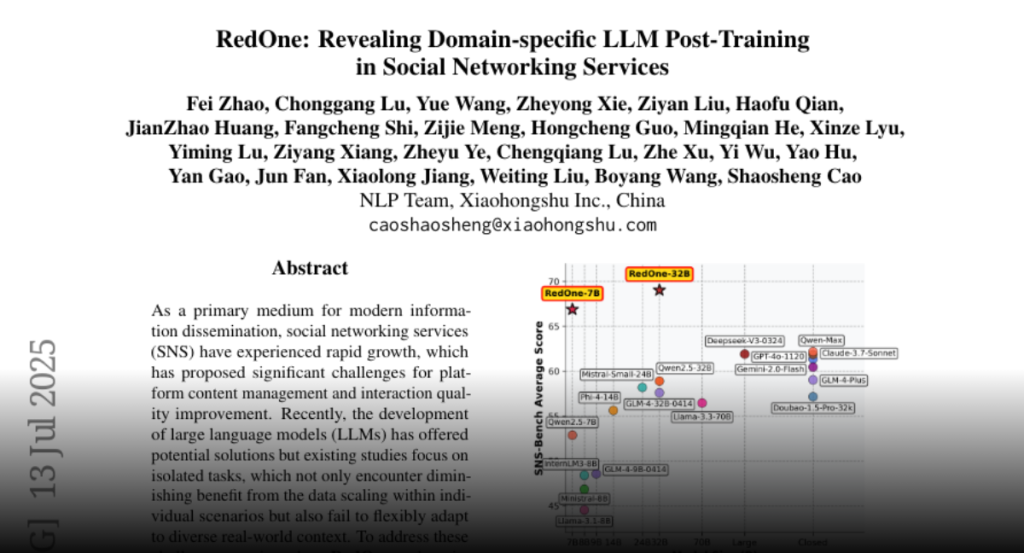RedOne, a domain-specific LLM, enhances performance across multiple SNS tasks through a three-stage training strategy, improving generalization and reducing harmful content exposure.
As a primary medium for modern information dissemination, social networking
services (SNS) have experienced rapid growth, which has proposed significant
challenges for platform content management and interaction quality improvement.
Recently, the development of large language models (LLMs) has offered potential
solutions but existing studies focus on isolated tasks, which not only
encounter diminishing benefit from the data scaling within individual scenarios
but also fail to flexibly adapt to diverse real-world context. To address these
challenges, we introduce RedOne, a domain-specific LLM designed to break the
performance bottleneck of single-task baselines and establish a comprehensive
foundation for the SNS. RedOne was developed through a three-stage training
strategy consisting of continue pretraining, supervised fine-tuning, and
preference optimization, using a large-scale real-world dataset. Through
extensive experiments, RedOne maintains strong general capabilities, and
achieves an average improvement up to 14.02% across 8 major SNS tasks and 7.56%
in SNS bilingual evaluation benchmark, compared with base models. Furthermore,
through online testing, RedOne reduced the exposure rate in harmful content
detection by 11.23% and improved the click page rate in post-view search by
14.95% compared with single-tasks finetuned baseline models. These results
establish RedOne as a robust domain-specific LLM for SNS, demonstrating
excellent generalization across various tasks and promising applicability in
real-world scenarios.

